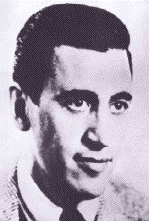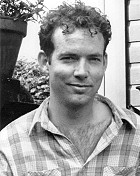


Theorizing Belonging: The Short Story Sequences of Salinger, Updike and Coupland
Short Fiction Conference, Salamanca , March 2004
This paper examines notions of belonging as
represented thematically in the short story sequences of the three
authors
mentioned in the title: J.D. Salinger’s Glass family stories (most of
which
were published in the three volumes: Nine
Stories (1953), Franny and
Zooey
(1961), and Raise High the Roof
Beam, Carpenters and Seymour: An
Introduction
(1963)); John Updike’s stories of the marriage and break-up of the
Maples
(collected as Too Far to Go
in 1979); and finally Douglas Coupland’s
1993
collection Life After God.
(Salinger’s stories are a sequence in the
true
meaning of the term, Updike’s collection is an actual story cycle,
whereas
Coupland’s stories form a themed collection, but are too loosely
connected to
be a proper sequence, lacking the linking device of a named fictional
family,
for instance.)
 |
 |
 |
| Salinger |
Updike |
Coupland |
The thesis of the paper is that all three
sequences are vehicles for the authors’ desire to examine the
conditions of
belonging (to a family, to a place, to a generation), and in effect
constitute
extended elegies designed to mourn the passing of roots, destinies and
fates.
Further, the paper forwards the hypothesis that
the medium of the short story cycle or extended short story sequence is
particularly well suited for theorising belonging. The looser
construction of a
number of short narratives offers the possibility of using narrative
techniques
of fragmentation and multiple viewpoints and polyphonic voicing. Other
prose
genres such as the single novel or sequence of novels (for instance the
family
saga) can no longer comfortably supply these without seeming either
old-fashioned or too avant-garde and experimental. In other words, the
short
story sequence or cycle is the ideal vehicle for expressing the anxiety
of
non-belonging that the postmodern condition begins to impose on the
family (and
particularly its male members) in a consumer capitalist society such as
the USA
and Canada - without completely abandoning the paradigm of
realist
storytelling.